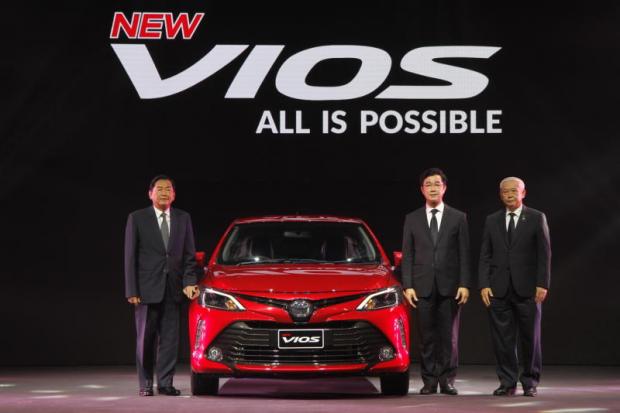
Japanese carmaker Toyota Motor Thailand is determined to push the electric vehicle (EV) market in Thailand with hybrid models even though the government will not grant any privileges for hybrid electric vehicle (HEV) production.
President Kyoichi Tanada said Toyota is committed to introducing more new HEV models locally to boost demand, without revealing future models and segments.
"The HEV market still needs time to stimulate consumer awareness, and we expect it will take 2-3 years for Toyota to localise large-scale production for both the domestic market and exports," he said.
At present, Toyota has two hybrid models which are high-end saloons: the Thai-made Camry and Japan-made Alphard. The Prius has yet to reenter the market after Toyota suspended its local assembly line at its plant in Chachoengsao on August 2015.
As of July 2016, Toyota sold a total of 55,802 HEV models in Thailand.
The Board of Investment (BoI) last year rejected the private sector's request for privileges for HEVs, saying it would be unfair to companies that have already invested in their production without incentives.
Carmakers had requested that the BoI consider incentives for investment in HEV production, arguing that limited demand for them makes it difficult to run a viable business without government support.
At present, there are four platforms for EVs. Hybrid electric vehicles (HEVs) and plug-in hybrid electric vehicles (PHEVs) were first developed with two systems, electricity/petrol and electricity/diesel. Battery electric vehicles (BEVs) were later developed, which are fuelled purely by electricity. Fuel-cell electric vehicles (FCVs) represent the latest technology.
In Thailand, as of 2016, there were 79,657 HEVs and PHEVs of all vehicle types registered. Of that total, 79,061 units were personal cars, according to the Department of Land Transport.
The number of HEVs and PHEVs registered in 2016 was 9,399, up from 7,256 in 2015 --a 29.5% increase.
Senior executive advisor Suparat Sirisuwanangkura said to have local HEV production in Thailand, carmakers need to secure sales of about 100,000 units a year.
Meanwhile, Toyota yesterday introduced its refreshed Vios sedan, with prices ranging from 609,000-789,000 baht, an increase over the previous model.
The Vios is also known as the Soluna in Thailand, where it is designed exclusively for Thai motorists.